Novels You Have to Read Before You Die
A few months back, one of our customers sent the states a special request for a listing of ten books we felt everyone absolutely must read in his or her lifetime. The question intrigued us and we immediately launched into a heated debate. Should the Bible exist on the list? No text has influenced Western culture more than, but might information technology be equally important to read the Koran or the Torah for a more enlightened worldview? Shakespeare seemed like a given, but how to cull between Hamlet and The Sonnets, between A Midsummer Night's Dream and Male monarch Lear? And what of bottom-known works — things like The Rings of Saturn or Bluets or No-No Boy or The Book of Disquiet? How could we whittle down our list to just ten books?
Equally it turns out, nosotros couldn't. Nosotros posed the question to our fellow book-savvy colleagues and, afterwards receiving some i,400 nominations(!) and putting it to a vote, nosotros ultimately settled on 25 titles. Instead of worrying so much about what had to be included, nosotros opted to present a collection of books that has the ability to modify the mode you lot recall and feel and reflects our diverse interests hither at Powell'due south. Nosotros promise y'all enjoy our suggestions.
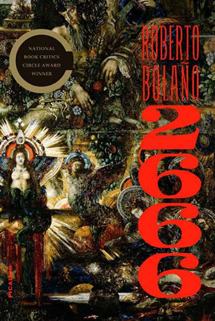
2666
Completed in 2003 shortly before his death, 2666 is not only Roberto Bolaño'south masterpiece but too one of the finest and most important novels of the 21st century. It's an entire earth unto itself, one — not unlike our own — filled with horror, neglect, depravity, brilliance, and beauty. Epic in telescopic and epitomizing the "total novel," 2666 fuses many different genres and styles to create a singular and unforgettable work of contemporary fiction. While Bolaño's swan song marked the pinnacle of a sadly truncated literary career, his immense talent, creativity, and vision endure. – Jeremy M.

All About Honey
We're taught to think of honey every bit something that happens to u.s.a.. Information technology's a magical but birthday passive experience. In her deeply personal and emphatic All Almost Love, renowned social activist and feminist bell hooks asserts that, in fact, love is a choice we must all make and it'southward non nearly as abstract or elusive every bit many of u.s. have come to believe. The book not only explores the role of love in our lives and the ways our culture has distorted its meaning, but guides us — with articulate definitions and examples — toward a improve understanding of how to cultivate it. If yous've ever wondered why some relationships stand the examination of time while others crumble, you should read this book. – Renee P.
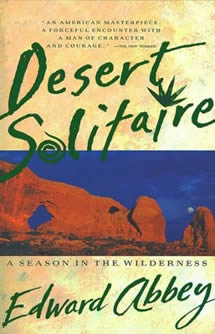
Desert Solitaire
No author encapsulated and celebrated the American Southwest more engagingly than iconoclast and raconteur Edward Abbey. Desert Solitaire: A Flavour in the Wilderness — at present most a half-century old — is a classic of environmental writing. In this autobiographical work, Abbey chronicles his time as a park ranger and reflects on mural, culture, politics, tourism, ecology disregard, and degradation — doing so with a unique blend of ornery charm and breathtaking clarification. Though set up in his beloved Southwest, Desert Solitaire beautifully and brashly captures the essence of the American outdoors, replete with disdain for those who'd seek to spoil its natural wonder. – Jeremy G.
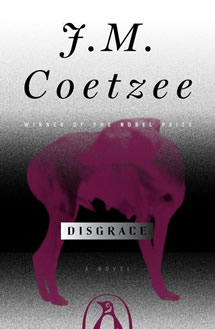
Disgrace
1 afternoon while talking with a friend virtually books, I wondered how to best describe my experience of reading Disgrace, and this is what I came up with: it'due south like a finely crafted, very abrupt knife resting gently against your skin. The uneasiness and suspense are there from the starting time, made all the more powerful past Coetzee's command and utilise of spare linguistic communication, and you never really take a deep breath until it'southward all over. Set up in modern South Africa, the book explores what it'south like to personally confront deep prejudices. Prejudices of gender, sexuality, course, and race. Far from being a politically correct diatribe, this novel is about how nosotros cope, how we survive every bit humans, and information technology forces the reader to reflect upon what seems at offset a very twisted reality. For each of the characters in this astonishing novel, redemption is attained through what becomes the very reshaping of their souls. – Rebecca
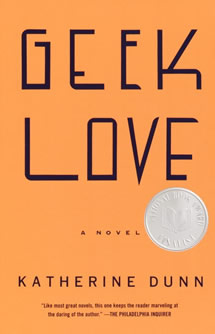
Geek Dearest
This is the book I recommend more than than any other — I tin can barely hold onto a copy of it because I am always giving it away to anyone who I recollect needs something that will blow the top of their skull off. On one level, it is the engaging, creepy, and extraordinary story of a family of purposely designed circus freaks, as told past the hunchback albino dwarf sis. On another level, it is a story about identity and belonging: How do you ascertain yourself in terms of your family? Your culture? Your trunk? Your religion? How do yous know what or who you lot really are? – Lizzy A.
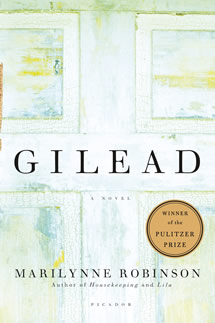
Gilead
Set up in 1956, Marilynne Robinson's Gilead is a letter from the elderly Reverend John Ames to his very young son. Ames has lived all of his life in Gilead, Iowa, and the novel delves into the history of the area through the characters of Ames's father and grandfather — also ministers, but securely divided on ideas such as pacifism, duty, and the abolitionist movement. And eventually, when John Ames Boughton, Ames's namesake and godson, returns to Gilead, he brings up sometime tensions and sets events in movement that disturb Ames's formerly peaceful last days. Gilead is one of the most beautifully written books of the new century thus far, and Robinson's incredibly insightful grappling with faith, mortality, and what constitutes a meaningful life will resonate with readers across every spectrum. – Jill O.
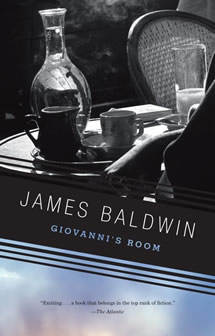
Giovanni's Room
Information technology would be difficult to talk about James Baldwin's Giovanni'south Room and not bear upon the simple fact that this slim novel, published in 1956, is mainly a love story between 2 men. Information technology seems impossible to think such a thing could be published pre-Stonewall, but such is the genius of Baldwin and the manner he captures the complexities of desire, love, and the tragic cost that comes from non following your heart. "Somebody…should accept told us that not many people accept e'er died of honey. Merely multitudes have perished…for the lack of information technology." This emotional wonder of a book comes downwards to 2 things: love and expiry. And actually, what else is there in life? – Kate F.
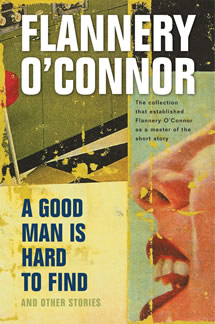
A Good Man Is Hard to Find and Other Stories
Flannery O'Connor'southward first curt story collection, written in 1955, will knock yous off your anxiety. Ruthless, penetrating, and loaded with subtext, A Proficient Man Is Hard to Find and Other Stories was dauntless for its time and feels only equally consequential today. Writing in the Southern Gothic tradition in a style wholly her own, O'Connor creates characters that are misguided, stunted curiosities, but she manages to capture what's homo in even the near despicable of people — which makes their doomed trajectories feel all the more tragic. And despite the disturbing events that unfold, the stories are a pleasure to read — they're infused with suspense, nighttime humor, and some of the most evocative imagery you'll see in literature. All this makes for a collection that never ceases to amaze — and begs to be reread. – Renee P.
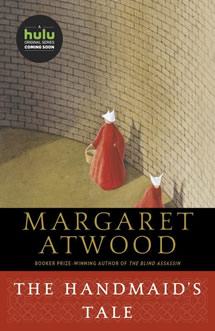
The Handmaid'due south Tale
Atwood's classic dystopian novel of a terrifying (and terrifyingly plausible) futurity America has rewarded rereading like no other book; I've probably read it 30 times by now. The world of the narrator, Offred (from "Of Fred" — women no longer have their own names), is chilling, only she is a magnificent survivor and chronicler, and the details of everything from mundane daily life to ritualized sexual practice and violence to her reminiscences of the time earlier (our gimmicky reality, as seen in the '80s) are absolutely realistic. The novel is every bit relevant today as e'er; feminist backlashes proceed to wax and wane, but women'due south rights remain in the spotlight. And despite its scenarios of great despair, The Handmaid's Tale is ultimately a hopeful book — Offred, and others, simply cannot be man without the possibility of promise, and therein lies the forcefulness of the resistance. All of Atwood is worth reading, but this book best exemplifies the cultural and psychological touch on that a work of fiction can create. – Jill O.
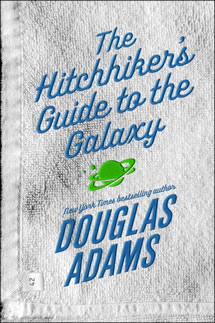
The Hitchhiker's Guide to the Milky way
Parodying practically every well-worn sci-fi plot device in being, Adams's Hitchhiker'south Guide to the Galaxy has get a archetype in its own right. A hapless hero with amazing luck? Ill-tempered aliens hell-aptitude on destroying Globe? Pithy communication (e.g., "DON'T PANIC")? Cheque, cheque, and check — and so much more. Even non–sci-fi geeks will be charmed by this hilarious and endlessly entertaining read, with (of form) sequels following. – Jen C.
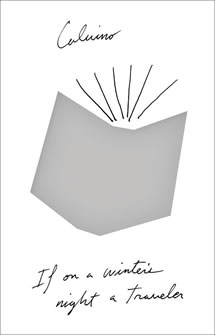
If on a Winter'southward Night a Traveler
For those with an dotty affair with books, If on a Winter'south Night a Traveler may well be the ultimate love letter to the reader. Calvino's novel is a masterfully created, startlingly unique work of fiction. Told alternately in 2d- and third-person narratives, the book is a fascinating exploration of the relationship between the author and the reader — weaving together seemingly unrelated tales, all of which chronicle directly to y'all, the reader. At its core is an ingenious concept the likes of which could take simply come from the unparalleled imagination of Calvino. By the time you attain its dazzling determination, you'll be wishing you could somehow read it again for the very showtime time. – Jeremy G.
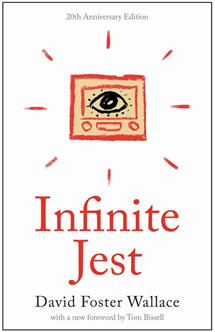
Space Jest
Infinite Jest is unique; information technology was bred in the optimism and new frontiersmanship of the dot-com 1990s but was simultaneously an early omen of where we are today. It looks into our nowadays beyond what were only horizons when it was written: the tensions of a global economy, the opiate of on-demand amusement, the near-impossible pursuit of greatness in a winner-take-all society. Tennis phenoms struggle in an absurdly demanding academy and recovering addicts search for something strong plenty to assist them through, all while a cadre of legless Quebecois assassins search for a picture so entertaining that they programme to use information technology as a weapon. At turns madcap and heart-wrenching, this is the tour-de-forcefulness novel of the forces that have shaped our new millennium and will likely continue shaping information technology for decades to come. – Tye P.
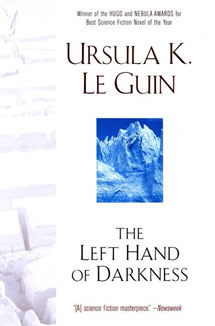
The Left Hand of Darkness
Not just is The Left Hand of Darkness a masterpiece of ideas, invention, and language, but it takes conventional assumptions about gender and grinds them into a fine, powdery dust. Published in 1969, the book won both the Hugo and Nebula Awards and went on to become one of the keystones of scientific discipline fiction. It tells the story of an ethnologist sent to some other planet, but it is Le Guin's powers of imagination that plow The Left Hand of Darkness into something truly transcendent. – Mary Jo S.
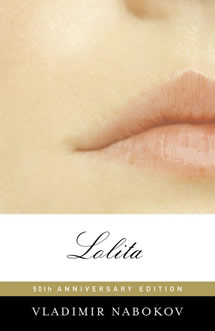
Lolita
Why should everyone read a book about a pedophile'southward obsessive and frankly gross relationship with a trivial girl? Because if you are a reader — a lover of words, puns, witticisms, metaphors, and allusions — Lolita is a literary masterpiece that can't be passed over in a fit of queasy morality. Humbert Humbert, the novel's unreliable narrator, knows that he's a despicable pervert and all the same the reader tin't help enjoying him as he surveys post-war America and piddling Lolita with the droll, cynical eye of a European expat adrift in a tawdry nation, and stuck irrevocably — and irredeemably — in the memory of an boyish dearest affair. Please, ignore the critics: Lolita isn't a morality tale and it isn't a love story. It'due south an unabashed look at a deviant mind written in some of the about deft and beautiful English ever published. – Rhianna W.
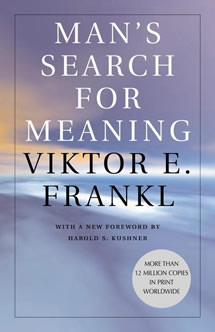
Man's Search for Meaning
Man's Search for Meaning is like nothing yous've ever read before. The first one-half of the volume depicts Dr. Frankl's iv years losing everything in concentration camps — a description so hellish, it leaves you desolate. Shattered by his Holocaust experiences, Frankl struggles to survive after he is freed. In the second half of the book, Frankl shows how that period of his life informs and develops his theory of "logotherapy" — he asserts that life is about finding meaning, what is meaningful to each individual. As excruciating every bit his experiences are, Frankl's theory is total of love; he is able to detect redemption for himself and others. This book is beautifully life-changing. – Dianah H.
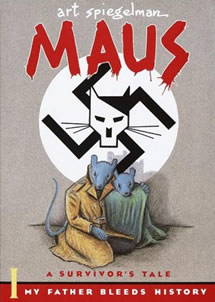
Maus
The twofold luminescence of Art Spiegelman'south groundbreaking, autobiographical Maus is the graphic novel's lack of sentimentality and Spiegelman's self-portrait as a secondhand Holocaust survivor. The Holocaust is a widely used trope in Jewish American writing and although Spiegelman treats the discipline with the compassion and historical sensitivity it merits, Maus avoids the themes of victimization and historical exceptionalism that render much Holocaust literature precious and insulated from the present. Instead, Spiegelman gives his characters the nobility of fully fleshed, complicated personalities and shows — in sometimes painful and unappealing ways — how his parents' Holocaust seeped into his childhood and haunts his beingness. – Rhianna Westward.
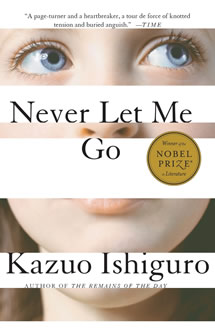
Never Permit Me Go
This is the kind of volume that captures you so completely you find yourself reading it at piece of work with the book roofing your keyboard, hoping no one notices merely likewise not really caring if you become fired. It's a subtle sci-fi story almost youth, freedom, and a lot of other proficient stuff — too much more than well-nigh the plot might take something abroad from the magical, transformative feel of reading it. Instead, I will say that the honest fashion Never Permit Me Go deals with love and thwarting makes information technology a book that anyone who ever plans to love another person should probably read immediately. – Lizzy A.
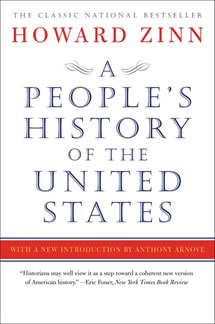
A People'due south History of the United States
While some of the revelations contained within this archetype by Howard Zinn have become familiar since the nearly 35 years after it was published (thanks in office to this book), it is to this mean solar day an astonishing and middle-opening read. Several revisions subsequently, it remains a seminal work, in stark contrast to the whitewashed (pun intended) American history about of united states of america learned by rote in school. It'south regretful with Zinn'south passing in 2010 that new revisions have ceased for time to come generations to detect. – Jen C.

The Phantom Tollbooth
The Phantom Tollbooth is the story of Milo, a very bored boy who comes domicile 1 day to find a magical tollbooth in his room. When Milo drives his motorcar through the tollbooth gate, he finds himself in the Lands Beyond, a state inhabited by living language in the forms of animals, magicians, royalty, mountains, seas, and cities. From Tock the Watchdog to the listless region of The Doldrums, Milo shakes off boredom as he pursues the kidnapped Princesses Rhyme and Reason and restores peace to the Lands (currently in the clutches of the warring princes, Azaz of Dictionopolis and the Mathemagician of Digitopolis, along with a pack of demons). What sets The Phantom Tollbooth apart from other wonderful swashbuckling middle-readers is that it's likewise about the transformative power of language: open up a book (or drive through a "tollbooth") and even the dreariest 24-hour interval dissolves into the din and glory of adventure. – Rhianna W.
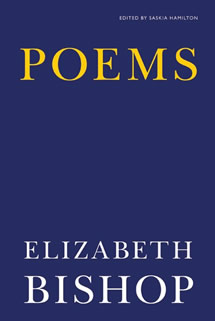
Poems
Elizabeth Bishop's poetry is dearly loved amongst her fans merely perhaps not every bit well-known equally it should be; for one of America's towering talents of the 20th century, she is non read almost as much as Eliot or Whitman, or fifty-fifty cummings. That may exist in role considering of her relatively slim output — this volume of all her poetic works clocks in at merely 368 pages. Only the care she took with her verse is evident; every word is perfectly chosen, none wasted or missing. Her piece of work is fiercely intelligent, poignant, surprising, plainspoken, and wrought from imagery both familiar and extraordinary. A must-read for anyone who is interested in verse, language, or indeed literature at all, Bishop's Poems speaks deeply to what makes usa human. – Jill O.
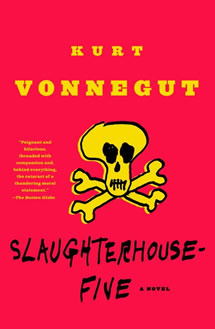
Slaughterhouse-Five
What Kurt Vonnegut set out to do was write a volume almost war, and in particular the firebombing of Dresden in World War II. What he ended upwardly doing was writing make clean around it — traveling in and out of fourth dimension warps, bouncing on and off the earth, sometimes setting down on the planet Tralfamadore, millions of miles abroad from Dresden and millions of miles away from war. What he created was a masterpiece of satire in which every crazy, clever moment, every whimsical line, no matter how deceptively light, is imbued with the sorrow and the starkness of the barbarism Vonnegut himself witnessed in that very real state of war. – Gigi Fifty.
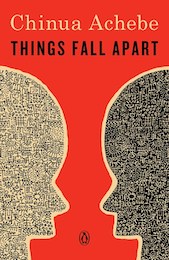
Things Fall Apart
Earlier Things Fall Apart was published in 1958, few novels existed in English language that depicted African life from the African perspective. And while the book has paved the fashion for countless authors since, Chinua Achebe's illuminating work remains a classic of modern African literature. Drawing on the history and customs passed down to him, Achebe tells the tale Okonkwo, a potent-willed member of a late-19th-century Nigerian village. Equally nosotros follow Okonkwo's story, we get a glimpse of the intricacies of hamlet life and the complex social structures that come into play. We so see the devastating effects of European colonization on the region and on Okonkwo himself, whose rise and fall become intertwined with the irresolute ability dynamics. Things Fall Autonomously is essential reading for anyone who wants a more nuanced understanding of other ways of life, of culture clashes, of what existence civilized really entails. – Renee P.
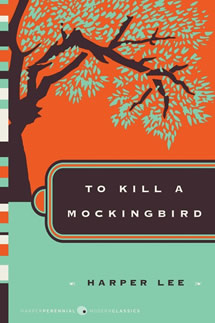
To Impale a Mockingbird
While To Kill a Mockingbird is a favorite book of pretty much everyone who has read information technology, it's important to remember that it continues to be destructive and challenging to the status quo. The protagonist is a immature girl named Scout and except for her male parent, all the main characters in the book are marginalized past the ability structure of their town — a structure that still exists nearly everywhere — where wealthy white men control the lives of everyone else, and even the members of that grouping who want to utilize their status for something honorable, like Scout's begetter Atticus, cannot win against the flattening wave of that ability. Until something about that structure really changes, this volume will remain required reading for every person in America. – Lizzy A.
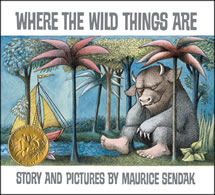
Where the Wild Things Are
We all hold our favorite childhood books dearest, but there's a reason Where the Wild Things Are is one of the most beloved picture books of all time. Of class it'southward almost Maurice Sendak's whimsy, his spare poetry, his imagination. Of course it's about his impeccably detailed illustrations, depicting the dazzler of a nighttime of wild rumpus and the elegant fiendishness of wild things who gnash their terrible teeth and scroll their terrible eyes. But mostly I think it's considering underneath the boundless (yet beautifully bounded) inventiveness of Sendak's earth, nosotros see — and remember — exactly what it is to be a kid. – Gigi Fifty.
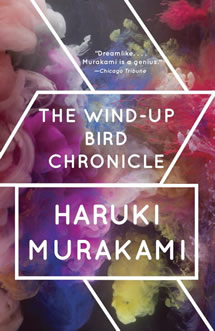
The Air current-Upwards Bird Relate
Known for his beautiful, haunting, lyrical, and — at times — funny surrealistic stylings, Haruki Murakami is ane of the virtually beloved Japanese authors in the Western world. Although infused with the pop culture of the Westward, his writing remains at its core firmly rooted in Japan. And as modern as his style is, his work draws upon the country's past while delving deep into the Japanese psyche. The Wind-Upwardly Bird Chronicle is pure Murakami — a vast, enchanting mystery filled with dreamlike surrealism. Considered by many to exist his best work, the novel tackles themes every bit varied as the nature of consciousness, romantic disappointment, and the lingering wounds of Earth State of war II. Readers will eagerly desire to unravel this intricate, multi-layered tale. – Jen C.
Printable PDF of the 25 Books to Read Before You Die
Likewise by Powell's Staff
Source: https://www.powells.com/25-books-to-read-before-you-die

0 Response to "Novels You Have to Read Before You Die"
Post a Comment